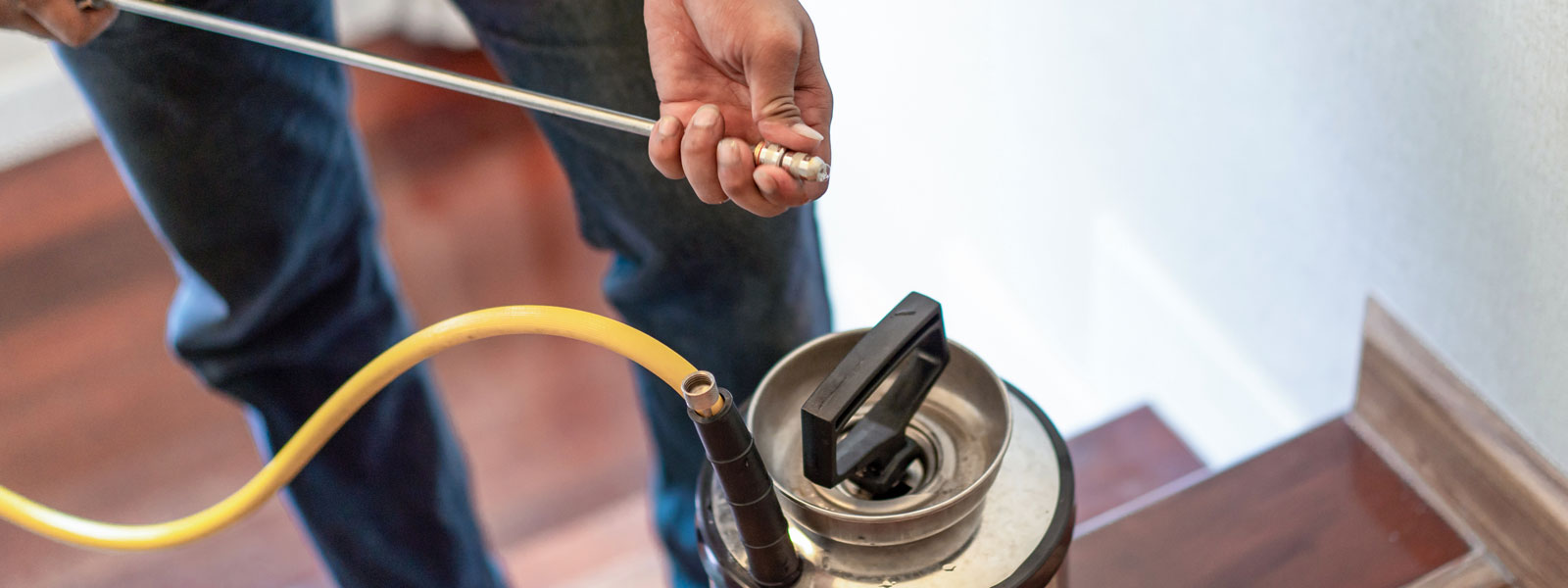Pest Control Clovis Done Right: Professional and Reliable
Wiki Article
Understanding the Numerous Approaches to Bug Control: A Comprehensive Overview

Natural Insect Control Approaches
Utilizing environment-friendly methods such as buddy growing and biological insect control is vital for successfully handling insects in farming settings. Companion planting entails expanding various crops in proximity to hinder insects, enhance nutrient uptake, and boost overall crop health. Planting marigolds alongside tomatoes can aid drive away nematodes. Intercropping maize with vegetables can disrupt the reproduction patterns of bugs like corn borers.Biological bug control involves presenting natural killers or pathogens to manage pest populations. Ladybugs, for circumstances, feed upon aphids, regulating their numbers without the need for chemical pesticides. One more example is the use of Bacillus thuringiensis (Bt), a microorganism that targets certain insect parasites while being harmless to people, animals, and beneficial bugs.
These green techniques not just reduce the reliance on artificial pesticides however additionally help protect biodiversity and dirt health. By incorporating all-natural bug control methods right into farming techniques, farmers can achieve sustainable pest monitoring while reducing unfavorable effect on the environment.

Chemical Parasite Control Solutions
In addition to natural pest control methods, the use of chemical insect control remedies plays a significant function in successfully handling pest populations in agricultural settings. Chemical parasite control services are formulated to target specific insects that might create considerable damage to plants. These remedies usually include synthetic pesticides that are designed to eradicate pests quickly and efficiently.Among the crucial benefits of chemical bug control options is their efficiency in managing insect infestations on a large range. Farmers can use these solutions using numerous techniques such as spraying, fumigation, or seed therapy to shield their plants from damaging insects, weeds, and diseases. In addition, chemical bug control services are relatively very easy to use and can offer rapid outcomes, assisting farmers safeguard their yields and reduce economic losses.
Nonetheless, it is important to use chemical parasite control services judiciously to minimize prospective adverse effect on the setting, non-target organisms, and human wellness. Proper application methods, adherence to safety guidelines, and normal tracking are vital to ensure the accountable usage of chemical insect control remedies in agricultural methods.
Organic Pest Control Approaches
Biological parasite control comes close to leverage natural killers or pathogens to handle bug populaces in agricultural settings properly. This approach offers a sustainable and environmentally friendly service to pest administration, lowering the reliance on synthetic chemicals and reducing damage to the environment. One typical organic control strategy is the intro of all-natural enemies, such as ladybugs or parasitic wasps, to target specific click this link insects. These predators eat the pests, helping to control their populations naturally - pest control clovis.Another biological control technique involves making use of microorganisms like fungi, microorganisms, or viruses to contaminate and kill bugs. Generally, organic insect control strategies provide a lasting and targeted solution to pest monitoring in agriculture.
Integrated Insect Monitoring (IPM)
Integrated Insect Administration (IPM) is an extensive technique that combines different bug control strategies to properly manage and lessen pest populaces in farming systems. IPM concentrates on long-term prevention of parasites through a combination of biological, social, physical, and chemical control approaches. By incorporating these different methods, IPM aims to reduce reliance on chemical pesticides, lessen ecological influence, and promote sustainable insect administration techniques.
One trick facet of IPM is using organic controls such as all-natural killers, bloodsuckers, and pathogens to regulate pest populations. This method utilizes the power of nature to preserve an equilibrium in between parasites and their all-natural enemies without causing harm to the atmosphere.
In addition, IPM entails social techniques like plant environment, cleanliness, and rotation manipulation to produce unfavorable problems for parasites and interrupt their life cycles. Physical controls such as traps, barriers, and mulches are additionally made use of to stop bug invasions.
Mechanical and Physical Bug Control Methods
Utilizing non-chemical approaches, such as physical and mechanical pest control techniques, is a critical element of extensive pest monitoring methods, building on the structure of Integrated Bug Management's all natural technique. Mechanical insect control involves the usage of physical barriers or catches to avoid insects from accessing and damaging plants or structures. This approach can include strategies like setting up displays on windows, making use of row covers in agriculture, or utilizing sticky traps to capture insects.Physical bug control methods, on the various other hand, concentrate on directly removing insects via physical ways. Using heat therapies to eliminate bed pests or vacuuming up pests like ants or crawlers can be effective ways to take care of invasions without the use of chemicals. By including these physical and mechanical bug control techniques right into an Integrated Parasite Administration strategy, professionals and people can lower reliance on pesticides while still successfully handling pest populations and reducing damage.
Final Thought

In addition to natural insect control approaches, the use of chemical pest control remedies plays a considerable role in successfully managing pest populaces in agricultural atmospheres.One of the key advantages of chemical parasite control services is their performance in controlling parasite infestations on a big scale.Integrated Bug Management (IPM) is her explanation a detailed approach that integrates numerous insect control strategies to efficiently take care of and minimize pest populations in farming systems.Utilizing non-chemical techniques, such as physical and mechanical insect control methods, is an essential element of thorough pest administration approaches, building upon the foundation of Integrated Bug Monitoring's holistic method. By integrating these physical and mechanical parasite control techniques into an Integrated Insect Administration strategy, professionals and individuals can decrease dependence on chemicals while still successfully reducing and handling pest populations damage.
Report this wiki page